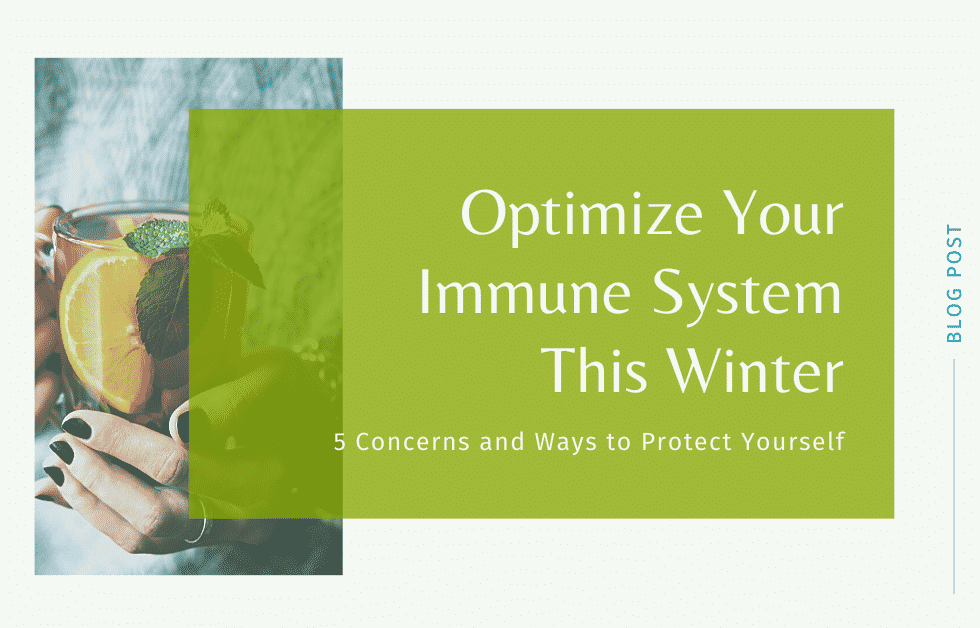Immunity is still not fully understood. We know the immune system provides barriers to protect our bodies from invaders and tries to detect and eliminate bacteria, viruses, parasites, and toxins that get past the first line of defense. If the invaders start to reproduce, our immune system is responsible for eliminating the challenge.
In this article, we’ll first discuss the lymphatic system and the role each of the organs play in our overall immune health. You’ll find 5 major concerns when talking about the immunity, each with ways you can protect and enhance your health moving forward.
Let’s start with some information on the immune system as a whole.
The Protective Barriers
Our skin is the outer wall of the immune defense. It is thick and difficult for invaders to penetrate. The eyes, nose, and mouth are protected by mucous that captures harmful attackers. In the nose cilia, which are tiny hairs, trap particles. In the digestive tract, stomach acid and intestinal beneficial bacteria help ward off intruders.
The Lymphatic System is a vital part of the immune system consisting of bone marrow, tonsils and adenoids, spleen, lymph nodes and thymus. It is a multifaceted system that supports the body’s defense team by:
- Producing immune cells and lymphocytes (a type of white blood cell)
- Providing storage for these cells
- Transporting cells to the various battlefronts throughout the body
- Employing clean up of bacteria, viruses, and dead or injured body cells
The Lymphatic Organs (and their role in immunity)
Let’s talk about each of the lymphatic organs and their role in keeping the immune system in tact.
Red Bone Marrow
Red bone marrow produces 60 to 70 percent of lymphocytes. Other lymphocytes begin life in the red bone marrow and become fully formed in the lymphatic tissues, including the thymus, spleen, and lymph nodes. (need to add source)
Tonsils
Out tonsils serve as a station to produce more lymphocytes which deal with local infections, trap germs, and kill bacteria that enters the mouth.
Spleen
The spleen removes old red blood cells and abnormal cells, removes microbes and debris from the blood stream, and stores and produces lymphocytes, which in turn produce antibodies or soldiers.
The Lymph Nodes
The lymph nodes are the immune system’s clean-up station and produce and store the cells that defend your immunity. As the lymph fluid passes through the nodes, bacteria and invading organisms are filtered out from the lymph fluid and then destroyed. As the fluid leaves the node, it picks up more immune cells to circulate throughout the body
Thymus
The thymus produces B-Cells and T-Cells (types of lymphocytes) and provides an area where T-cells mature. It also contains many lymphocytes, protects against autoimmunity, and is actually larger in early years to program the way that the body resists infection.
Immune System Concerns – and How to Support It
Keeping our immune system healthy is of the utmost importance. Below, we’ll walk through 5 major concerns and how to address each.
“Get plenty of sleep, be physically active, manage your stress, drink plenty of fluids, and eat nutritious food.” – The Center for Disease Control and Prevention
Concern: Dehydration
Every system of your body depends on water. Water flushes out toxins and carries nutrients to cells. Average urine output is about 6.3 cups per day and you lose about one liter of water per day via sweat, breathing, and bowel movements.
How to hydrate:
- Incorporate whole foods such as fruits and vegetables to get more fluids. These foods can supply our bodies with approximately 20% of needed fluids.
- Drink purified water and limit caffeinated drinks, as they dehydrate the body. The Institute of Medicine recommends that men drink thirteen cups of water a day and that women drink nine.
Concern : Sedentary lifestyle
Our lymph system plays a vital role in our immunity. It only moves by osmotic pressure so our lymphatic fluid is only active when our bodies are active. If you do not move, then your lymph system will become stagnant and toxic, which increases vulnerability to illness. According to Dr. Gordon Pedersen, exercising increases natural killer cells by 13%.
Easy ways to support your lymph:
- Consider dry skin brushing
- Schedule yourself for a monthly massage
- Take a yoga class at least three times a week
- Bounce on a mini trampoline
Concern: Sleep deficiency
The National Sleep Foundation states that 68% of Americans report suffering from sleep deprivation. Studies have shown that adults need an average of 8 hours of sleep each night. When sleep is interrupted the immune system cannot complete its defense cycle. Poorer sleep efficiency and shorter sleep duration in the weeks preceding exposure to a rhinovirus were associated with lower resistance to illness. Source: Arch Intern Med. 2009;169(1):62-67
Tips to get better sleep:
- Avoid using electronics 2 hours before bed
- Make sure your room is dark
- Avoid eating heavy meals 2-3 hours before bedtime time
- Meditate or focus on breathing to relax
- Extending your exhale slightly longer than your inhale supports the calming side of our nervous system
- Use lavender essential oil
- A diffuser works great but you can also create a pillow spritzer or apply topically
Concern: Stress filled lifestyles
Stress can be defined as any type of change that causes physical, emotional or psychological strain. Up to 90% of the doctor visits in the US may be triggered by a stress-related illness, according to the Centers for Disease Control and Prevention. In her book Who Switched Off My Brain?, neurological researcher, Dr. Caroline Leaf states “…even more ominous is the effect of small amounts of day-to-day stress. This confuses your immune system, effectively setting in motion the autoimmune response that causes your body to turn on itself.”
How to de-stress:
- Meditate each day by focusing on your breath
- Take breaks and go for walks or do some yoga
- Find a creative outlet and spend time doing something you love to do
- Spend time in nature
- For every two hours of work, relax for 10-15 minutes
Concern: Negative thoughts
According to Dr. Caroline Leaf:
- There is a direct communication between your thoughts and the way your immune system functions.
- Toxic thoughts trigger negative and anxious emotions, and produce chemicals that cause the body stress.
- Neuroscientists can track a sequence of reactions through which harmful thoughts unleash a torrent of destruction upon the body.
- Intense worry, anxiety, fear, and anger create a strong stress response in the body and can eventually cause the immune system to be less effective in dealing with cancer cells.
Creating positive thought patterns:
- Create mantras you can reference throughout the day, such as “I am happy and whole.”
- Create a gratitude list each day
Concern: Eating a nutrient poor diet
Drinking soda, eating fast food, sugar-laden foods, white breads, processed foods, and artificial sweeteners provide the immune system very little nutrition to function properly.
Focus on eating foods that support immunity:
- Eat 7-9 servings of fresh organic fruits and vegetables of different colors to provide a variety of nutrients
- Choose lean cuts of meat, fish and poultry. Protein is needed to manufacture white blood cells.
- Avoid the “Bad Fats” such as trans fats. They slow down the function of T-cells Consume healthy fats such as those found in omega three fatty acids, olive oil, raw nuts, avocados, and olives.
- Remember to eat plenty of fiber and fermented foods such as sauerkraut.
- Consider adding these foods to your diet for their unique properties:
- Peppers are higher in Vitamin C than citrus fruits.
- Fish such as salmon and cod are the only food source of vitamin D3.
- Mushrooms increase production of white blood cells. Try shiitake, maitake, and reishi.
- Watermelon is rich in glutathione.
- Sweet potatoes are rich in beta carotene and vitamin A.
Add spices that support immunity:
- Ginger root is good source of zinc, supports digestion and helps eliminate mucus from our body.
- Tumeric has anti-inflammatory properties.
- Garlic supports the immune system against viruses.
Deciding if Supplements Are Right for Your Immune Health
The American Medical Association stated that everyone should take a multi-vitamin in order to guard against nutritional deficiencies. Our soil has become so depleted of nutrients that our food does not supply us with nearly as much nutrition as it did 50-100 years ago; this is vital because major deficiencies of even one vitamin and mineral can lead to disease.
Please remember to work with a health care practitioner before starting a supplement protocol.
My recommendations for maximizing immunity in the winter months:
- Take a fully buffered Vitamin C (2000-3000mg) daily.
- Take Vitamin D3 (2000-5000IUs) daily.
- Rub Oil of Oregano or Good Samaritan Essential Oil on bottom of feet at night.
- Take a probiotic at bedtime.
- Consider NAET (acupressure) treatment for allergies, viruses, and bacteria including the influenza vial.
- Eat plenty of fresh fruits and vegetables (organic when possible) and avoid sugar, alcohol, and overeating.
- Exercise, do yoga, and meditate daily.
- Drink herbal teas such as ginger tea or peppermint tea.
My recommendations during times of exposure or if you get sick:
- Take ImmuCore – 2 tablets 3 times a day.
- If taking Vitamin D3, increase to 5000IUs twice a day for 3 days.
- If on probiotic take double for 3 days.
- Drink plenty of pure water to maintain urination every 3-4 hours, eat only when hungry, and get plenty of rest.
- Drink ginger tea made with 4-5 slices of fresh ginger.
- Rest.
- Continue using essential oils as mentioned above.
Additional recommendations for supporting immunity:
- Take a bath!
- Detox Bath: Add a ½ cup of baking soda and a ½ cup Epson salts
- Respiratory Support Bath: Add ¾ cup to 1 cup of apple cider vinegar and 1 tbsp of powdered ginger
- Use a nasal cleanser, like a neti pot at least once a week.
Did you know that the intestinal tract is the largest organ in the immune system? If our intestines aren’t working properly, it can add additional stress on the immune system and create health problems. For more info, take a minute to read my earlier blog, Healthy Digestive System = Healthy Immune System.
If you’re interested in optimizing your immune system, reach out today to schedule a 1-on-1 consultation with me.

